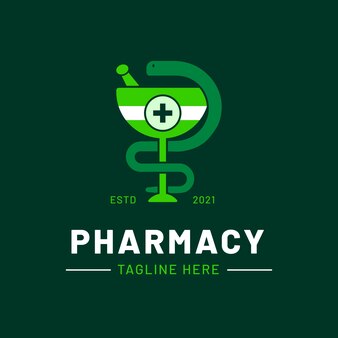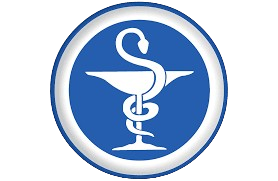B.Pharmacy
The four-year undergraduate Bachelor of Pharmacy (B.Pharmacy) curriculum is intended to give students a thorough understanding of pharmaceutical science. Students are first exposed to basic courses like chemistry, biology, and human anatomy, which aid in their comprehension of the principles involved in the formation of medicine. Students go deeper into topics including pharmacology, pharmaceutical chemistry, and drug regulation as the course goes on. Additionally, to provide hands-on experience in medication manufacturing and testing, practical lab sessions are incorporated.
B.Pharmacy places a strong emphasis on developing the essential skills needed for a career in the pharmaceutical sector in addition to theoretical knowledge. Pupils gain knowledge of the ethical and legal facets of pharmacy, which are essential while managing drugs. In addition, internships and exposure to the industry enable students to put their knowledge to use in practical situations, guaranteeing they are well equipped for the workforce.

Graduates have a wide range of job options to choose from, including working as drug researchers and developers, becoming pharmacists, or even going back to school for advanced degrees in specific areas like clinical pharmacy. B.Pharmacy is a great option for individuals who are passionate about medicine and healthcare since it provides a thorough combination of theory and practice.
B.Pharmacy Jobs
B.Pharmacy (Bachelor of Pharmacy) graduates have a wide range of job opportunities in various sectors. Here are some of the prominent career options:
Pharmacist: Pharmacists play a crucial role in healthcare by ensuring the safe and effective use of medications. Moreover, they provide essential advice and support to patients, which significantly enhances overall health outcomes.
Pharmaceutical Industry: The pharmaceutical industry is pivotal in developing and manufacturing medications that improve global health. Consequently, it invests heavily in research and innovation to discover new treatments and therapies.
Clinical Research: Clinical research is essential for advancing medical knowledge and developing new treatments. By conducting rigorous trials and studies, researchers can evaluate the safety and efficacy of new drugs and therapies, ultimately improving patient care.
Medical Representative: A medical representative plays a vital role in the pharmaceutical industry by promoting and selling medical products to healthcare professionals. Additionally, they provide valuable information about drug benefits and potential side effects, supporting informed decision-making in patient care.
Regulatory Affairs: Regulatory affairs is a critical field in the pharmaceutical industry that ensures compliance with laws and regulations governing drug development and marketing. Consequently, professionals in this area work to navigate complex regulatory requirements, facilitating the approval and market access of new medications.
Drug Inspector: A drug inspector is responsible for overseeing the quality and safety of pharmaceuticals and ensuring that they comply with regulatory standards. In addition, they conduct inspections and enforce regulations to protect public health and prevent the distribution of substandard or counterfeit drugs.
Pharmacovigilance: Pharmacovigilance is essential for ensuring the safety of medicines by monitoring and assessing adverse drug reactions. Consequently, it plays a critical role in protecting public health and improving treatment outcomes.
Teaching: Teaching is a dynamic process that fosters learning and personal growth in students. Furthermore, it encourages critical thinking and helps develop essential life skills that shape future success.
Hospital Pharmacy: Hospital pharmacy ensures the safe and effective use of medications within healthcare settings. Additionally, it plays a crucial role in optimizing patient care by collaborating with other healthcare professionals to provide personalized treatment.
Entrepreneurship: Entrepreneurship drives innovation by turning creative ideas into viable businesses. Moreover, it fosters economic growth and creates opportunities for both the entrepreneur and the community.
These roles offer diverse career paths, and additional certifications or postgraduate studies (like M.Pharm, MBA, or Pharm.D) can further enhance job prospects.
Frequently Asked Questions (FAQs)
1. What is a B.Pharmacy course?
To begin with, a Bachelor of Pharmacy (B.Pharmacy) is an undergraduate degree program that focuses on the study of pharmaceuticals and medicine. Specifically, it covers the preparation, dispensing, and proper utilization of medications.
2. What are the eligibility criteria for B.Pharmacy?
Initially, students must have completed their higher secondary education (12th grade) with a background in science. Moreover, they should have studied subjects like Physics, Chemistry, and Biology or Mathematics. Additionally, some institutions may require a qualifying entrance exam.
3. What subjects are covered in the B.Pharmacy curriculum?
Firstly, the curriculum includes subjects such as Pharmaceutical Chemistry, Pharmacology, Pharmacognosy, and Pharmaceutical Analysis. Furthermore, students will study subjects related to clinical pharmacy, medicinal chemistry, and drug development.
4. What career opportunities are available after completing a B.Pharmacy degree?
Following the completion of the B.Pharmacy course, graduates can pursue various career paths. For instance, they may work as pharmacists in hospitals or retail settings. Additionally, they can explore opportunities in pharmaceutical research, regulatory affairs, and drug manufacturing. Furthermore, some graduates may opt for higher studies or specialization in fields like clinical research or pharmaceutical management.
5. How long does it take to complete the B.Pharmacy course?
Generally, the B.Pharmacy program is designed to be completed in four years. However, the duration might vary slightly depending on the institution and any additional requirements or internships.
6. What skills are essential for a successful career in pharmacy?
To succeed in the field of pharmacy, several skills are crucial. Primarily, strong analytical and problem-solving skills are needed. Additionally, effective communication skills are important for interacting with patients and healthcare professionals. Moreover, attention to detail and a solid understanding of pharmacology and drug interactions are essential.



